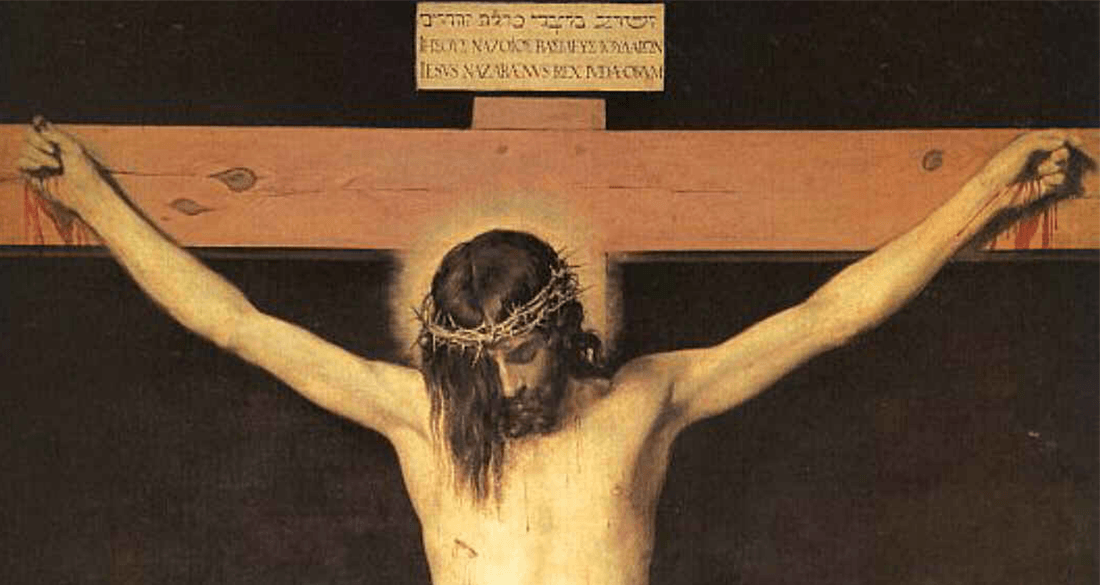
There
was also an inscription over him, “This is the King of the Jews.” (Luke
23:38)
In
my theatre days I had the privilege of working with a talented (if extremely
eccentric!) Brit named David Perry. David was a senior tutor at the Royal
Academy of Dramatic Arts. He drank Shakespeare with his mother’s milk, and I
loved being directed by him in his whimsical but very British way. I think we
worked on about four classical British plays together over the years. Once an
actor asked him why the British would still have the archaic institution of
monarchy in modern times.
“Because,
my dear,”—David called everyone “my dear” regardless of gender—“of the Royal
Prerogative of Mercy. Even if you’re convicted by every court in the realm, you
can still appeal to the Queen for pardon.”
Mercy
and pardon are really the only powers the monarch has left. Britain’s queen and
any king who comes after her won’t be able to raise or lower taxes, decree
laws, send out ambassadors, or declare either war or peace with an enemy. The
monarch is really a symbol of the government. The only power remaining to the
crown is that of royal forgiveness.
And
that’s still a pretty important power to possess.
On
the last Sunday of the liturgical calendar, Christ the King, we behold in our
gospel reading (Luke 23:33-43) another powerless king—Jesus. Declared to be “the
King of the Jews” in an insulting taunt by Pontius Pilate, the condemned Jesus
is nailed to a cross and hoisted aloft to suffer until his lungs fill up and he
drowns in his own bodily fluid. The story in Luke’s gospel is one of complete
and total loss. Jesus’ friends have abandoned him, his body is failing, his
dignity has been stripped away as the crowds and leaders of the people rail and
mock him, and his body is immobilized—he is powerless even to wipe the sweat
from his own eyes.
Yet
he retains the one power of the
monarch—the power to forgive.
As
the nails are going into his hands, so some versions say[i], Jesus proclaims, “Father,
forgive them; they do not know what they are doing.” (v.34) Not even extreme
agony and disgrace can take away the power of compassion and understanding.
The
Prerogative of Mercy is shown again in verse 43 when Jesus comforts the
confessed and condemned criminal at his side, “Truly I tell you, today you will
be with me in Paradise.” The laws of this world may condemn, but they have no
power over the mercy of Almighty God. And this is something we would all do
well to remember. However we may revile those who have trespassed against us,
God has seen to their hearts. God has understood the pain we’ve refused to see
because we are blinded by our love affair with indignation and determined
always to be right.
I
hasten to point out that in the UK the monarch’s power to pardon does not
include the power to acquit. If one is found guilty, the guilty verdict still
stands. It is only the penalty that is lessened. If we are to exercise the
power of pardon which our King has graciously bestowed on us as Christians, we
certainly can’t pretend that a wrong isn’t a wrong or that a hurt isn’t a hurt.
None of us can go back and change the past. But we can examine our own guilty
verdict and the pardon we’ve received and try to apply it to others, always
remembering that what we find impossible to do is still possible for our
merciful King. Perhaps our best response may be to appeal to God to forgive those
things which we cannot forgive ourselves.
May the
spirit of mercy guide us all as we enter into Advent. Thanks for reading my blog this week.
[i] Some
of the earliest known copies of Luke’s gospel do not include this saying. Bible
scholars think it might’ve been inserted later, but I don’t think that matters.
The fact that it became part of the accepted canon indicates that the early
followers of Jesus must’ve preached about the power of forgiveness.
No comments:
Post a Comment